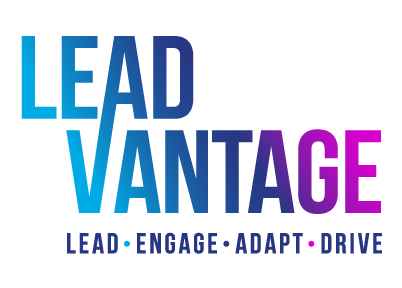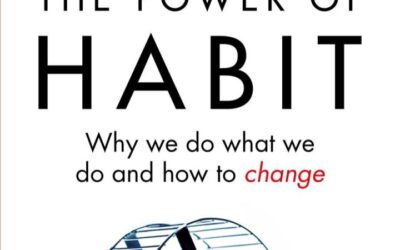“Shirzad gives us the tools to create positive change that lasts. This is a must-read for any individual or team serious about unleashing peak performance.” Dean Morton, former COO of Hewlett-Packard (HP)
Positive Intelligence is a model that has a powerful impact on your state of mind and how you can navigate the stresses and pressures of daily life. It provides exercises and tools to help you communicate from a fresh perspective, improve personal and professional relationships, and ensure winning strategies that benefit everyone with whom you interact.
Is it a tall order? We promise you that it is not! After completing a six-week course based on this book, we have witnessed much self-awareness and growth within ourselves. And the best part, it isn’t hard!
Consistency is the key. It takes a little effort every day to build your muscle memory. Within a short time, you will see a noticeable difference.
What is Positive Intelligence (PQ)?
Positive Intelligence measures your ability to control your mind and, ultimately, your happiness. There are two states:
- Our mind is our friend; we can tap into positive emotions to generate happiness.
- Our mind is our enemy, and we harbour characteristics that can sabotage our happiness and success.
What are these saboteurs (characteristics) that impact our happiness?
Firstly, we all have them! Every human develops them when we are young to protect us from harm. Unfortunately, we continue to utilize these characteristics long after they no longer serve us.
- Judge: We find fault in ourselves and others.
- Stickler: The perfectionist.
- Pleaser: People-pleasing tendencies to gain acceptance and affection.
- Hyper achiever: Dependence on external achievement for respect and validation.
- Victim: The use of emotions and temper to gain attention.
- Hyper-rational: Intense and exclusive focus on the rational processing of everything.
- Hyper-vigilant: Intense and continuous anxiety about what could go wrong.
- Restless: The constant search for greater excitement.
- Controller: An anxiety-based need to take charge and be in control.
- Avoider: Focuses on the positive and pleasant in an extreme way.
While many of us could likely read the list and relate to a few saboteurs, you can skip the guesswork and take a free online assessment to discover your top saboteurs.
Now that I know my saboteurs, how can I improve my Positive Intelligence?
Improving your Positive Intelligence is as easy as 1, 2, 3!
1. Weaken Your Saboteurs.
The most effective way to weaken your saboteurs is to notice your thoughts and emotions when they are impacting you and label them.
When you do this, you create heightened self-awareness in the moment and become fully aware of how your emotions may be controlling your thoughts or actions.
For example, if you pass judgment and say, “This is terrible news!” You can roadblock your saboteur by saying, “My judge is telling me this is terrible news.”
The difference in those two statements significantly impacts how you perceive the situation. Trust us, try it for yourself! It is eye-opening how often this happens and how quickly you can shift your energy!
2. Strengthen Your Sage.
Your saboteurs create all your distress in the forms of stress, anxiety, shame, anger, guilt, and disappointment. This means that all your unpleasant feelings are self-generated. The best way to fight this fire is to activate your sage.
Your sage has access to your five great powers: empathy, exploration, innovation, navigation, and decisive action. These powers allow you to face your challenges and generate the best results.
A trick to activating your sage under challenging situations is to practice the three-gifts technique. The three-gifts technique is as simple as ‘What are three scenarios where this supposedly bad situation could turn into a gift and opportunity?’
We recently tested this within our own business, and it dramatically impacted how we approached our problem-solving as it created out-of-the-box thinking with a fresh perspective.
3. Strengthen Your Positive Intelligence (PQ) Brain.
Any muscle development requires consistency and repetition. Using ‘reps’, you develop your PQ brain the way you would develop a bicep. Reps are as simple as focusing on your body and any five senses (sight, sound, touch, smell, and taste) for at least ten seconds. Research has found that focused attention on present physical sensations activates the PQ regions of our brain. We can permanently rewire our brains by consistent and focused exercise!
Experts say:
10,000 steps a day = great health
100 PQ reps a day = great brain health
So, when you find yourself experiencing any of the signs of distress mentioned above, take ten seconds and refocus your attention to activate your sage and build those PQ muscles! Our favourite exercise is to rub our fingers together for ten seconds while focusing on our breath. It works like a charm every time.
This book promises results within 21 days of focused effort in building your PQ brain, and it does not disappoint. If you want to reach peak performance and create positive and lasting change, this book is for you!
At Lead Vantage, we utilize our studies with Positive Intelligence in our leadership training and coaching sessions. This focused attention on our brain health helps our clients develop a deeper understanding of how they can shift their perspective and create winning solutions in difficult situations. Contact us at info@leadvantage.ca to learn more about our programs and coaching.





